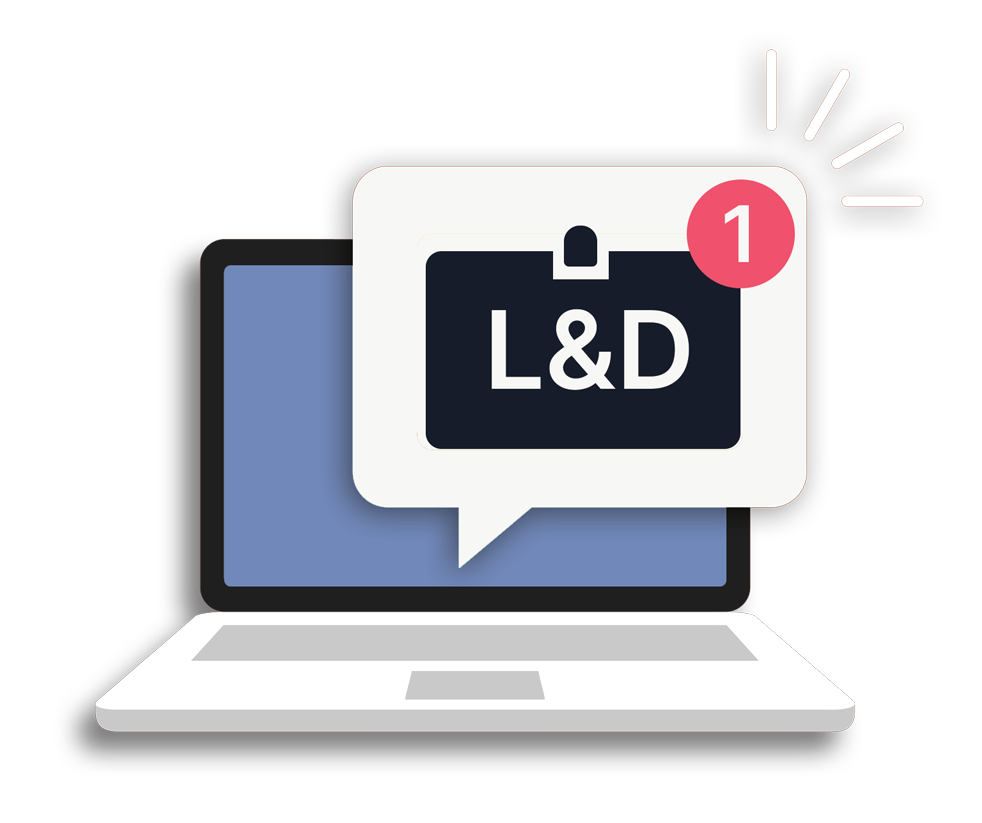This article is part of our Training Requirement Series where we provide comprehensive guides to meet the actual training requirements that are often needed/requested of learning and development departments within Australia's healthcare organisations. This series includes both general requirements, such as communicating critical information, but also focuses on the specific requirements stemming from the NDIS, Aged Care and NSQHS Quality Standards.
What is "Communication in Healthcare"?
In healthcare settings, communication is a vital component that facilitates the continuum of care. It involves various elements, such as:
- Verbal and non-verbal interactions between healthcare professionals and patients.
- The transmission of patient data between different care providers.
- The articulation of care plans and decision-making processes to patients and their families.
- Documentation and record-keeping that support patient care and medical histories.
What is "Communicating Critical Information"?
Communicating critical information is a nuanced aspect of healthcare communication that requires promptness and precision. It encompasses:
- Delivering test results that may require immediate action.
- Notifying team members about urgent patient needs or changes in condition.
- Conveying treatment plans and emergency procedures clearly and accurately.
What is the "Communicating Critical Information" Training Requirement?
Adherence to training requirements is mandated by the Australian Commission on Safety and Quality in Health Care, and the Aged Care Quality and Safety Commission to ensure healthcare workers can effectively relay critical information. The following standards outline these requirements:
Relevant Standards
Action 6.09: Communicating critical information:
Multidisplinary teams and/or clinicians must use clinical communication processes to communicate critical information, alerts, risks effectively. This should occur in a timely way, when emerged, or changes to:
- Clinicians who make decisions about care
- Patients, families, and carers in accordance to the patient's wishes
Action 6.10: Communicating critical information:
Communication pathways exist between clinicians, patients, carers and families are in place to ensure critical information and risks are accessible and understood.
National Safety and Quality Health Service (NSQHS) Standards
Requirement 1.3 (e): Information to support choice:
Information is current, timely, and accurate. It is commmunicated to consumers in a clear, easy to understand manner that enables them to make informed choices.
Requirement 3.3 (e): Consumer information:
Conditions, needs, and preferences of each consumer is documented and communicated within the organisation (and those responsible for their care).
Requirement 4.3 (d): Communicating information to support daily living:
Conditions, needs, and preferences of each consumer is documented and communicated within the organisation (and those responsible for their care).
Action 1.3.1: Information communication systems:
Systems are in place to ensure information provided to older people are; current, accurate and timely; plainly expressed and presented in a way they can understand; enables informed consent
Action 3.1.2: Involving clients in planning and assessments:
Communication and partnerships with the older people (and those they wish to be involved) are reinforced during assessment and planning of their care
Action 3.1.3: Communicating assessment and planning outcomes to clients:
The outcomes of assessment and planning are effectively communicated to:
- a. the older person, in a way they understand
- b. the older person’s family, carers and others involved in their care with their informed consent.
Action 3.3.1: Communication systems:
Systems in place to ensure critical information about older people (and their care and services) are effectively communicated to workers, family, carers, health professionals, and others in a timely manner.
Strengthened Quality Standards framework analysis - Aged Care Quality Standards
Failure to comply with the requirements could lead to an organisation being penalised or reprimanded.
What Skills Do Staff Need for Communicating Key Information In Healthcare?
Healthcare staff must hone specific skills to ensure they are prepared for communicating critical information:
| Skill | Explanation |
|---|---|
| Clarity | Ensure oral and written communication is clear and concise. |
| Listening | Engage in active listening to understand information accurately. |
| Emotional Intelligence | Utilise emotional intelligence when handling sensitive information. |
| Technical Proficiency | Direct observation in practice |
| Adherence to ethical and legal frameworks | Be proficient in documentation and communication technologies. |
How to Assess Staff Competency in Communicating Critical Information
Assessment of staff competency can be achieved through simulations, role-playing scenarios, and direct observation during clinical practice. These assessments should be both formative and summative, providing ongoing feedback as well as a final evaluation of competency.
- Observation: Utilise direct observation and feedback during clinical handovers.
- Simulation: Employ role-play to simulate communication scenarios.
- Written Assessments: Conduct written tests to assess knowledge of protocols.
Strategies to Support Healthcare Staff Develop Communicating Key Information Skills
To nurture employee development in critical communication, organisations should implement:
- Training Sessions: Offer regular training tailored to different learning styles.
- Mentoring: Implement peer-to-peer mentoring and shadowing programs.
- Case Studies: Engage in practice-based learning using case studies and simulations.
- Culture of Communication: Foster a workplace that encourages open communication and feedback.
Sample Training Plan for the Healthcare Communication Training Requirement
The ability of staff to communicate information to people receiving care is extremely important to all aspects of healthcare.

Using the above needs assessment survey as an example - The skill needed for effective healthcare communication that requires the most attention is clarity. We can target learning initiatives to fill these gaps to enhance staff competency.
Need an LMS that can support information communication training?
Contact Ausmed today and see how we can support with your information communication training requirements!
Staff Competency Assessment for Communicating Key Information - Example
Consider the following survey questions to evaluate communication skills:
Staff Survey - Communicating Critical Information Competency
-
Describe your process for ensuring that critical information is accurately conveyed to others.
- [Answer here]
-
How do you adjust your communication approach when dealing with patients from diverse backgrounds?
- [Answer here]
-
What are the main barriers you face when communicating critical information and how do you overcome them?
- [Answer here]
-
In what ways do you check for understanding when discussing complex patient care with colleagues?
- [Answer here]
-
Share an example of a time when you had to deliver critical information under pressure.
- [Answer here]
-
Discuss the role of electronic health records in your communication strategy.
- [Answer here]
Conclusion
Mastery in communicating critical information is integral to the safety and efficacy of healthcare delivery. Through dedicated training and consistent practice, healthcare professionals can ensure that critical information is conveyed effectively, thereby upholding the standards of patient care and clinical excellence.


References
- Australian Commission on Safety and Quality in Health Care, 2023. 'NSQHS - Communicating for Safety Standard'
- Australian Commission on Safety and Quality in Health Care, 2023. 'NSQHS Action 6.09'
- Australian Commission on Safety and Quality in Health Care, 2023. 'NSQHS Action 6.10'
- Aged Care Quality and Safety Commission, 2023. 'Standard 1. Consumer dignity and choice'
- Aged Care Quality and Safety Commission, 2023. 'Requirement 1.3 (e)'
- Aged Care Quality and Safety Commission, 2023. 'Standard 3. Personal care and clinical care'
- Aged Care Quality and Safety Commission, 2023. 'Requirement 3.3 (e)'
- Aged Care Quality and Safety Commission, 2023. 'Standard 4. Services and supports for daily living'
- Aged Care Quality and Safety Commission, 2023. 'Requirement 4.3 (e)'
- Aged Care Quality and Safety Commission, 2023. 'Stronger Standards, Better Aged Care Program - Action 1.3.1'
- Aged Care Quality and Safety Commission, 2023. 'Stronger Standards, Better Aged Care Program - Action 3.1.2'
- Aged Care Quality and Safety Commission, 2023. 'Stronger Standards, Better Aged Care Program - Action 3.1.3'
- Aged Care Quality and Safety Commission, 2023. 'Stronger Standards, Better Aged Care Program - Action 3.3.1'


